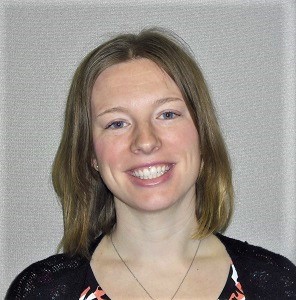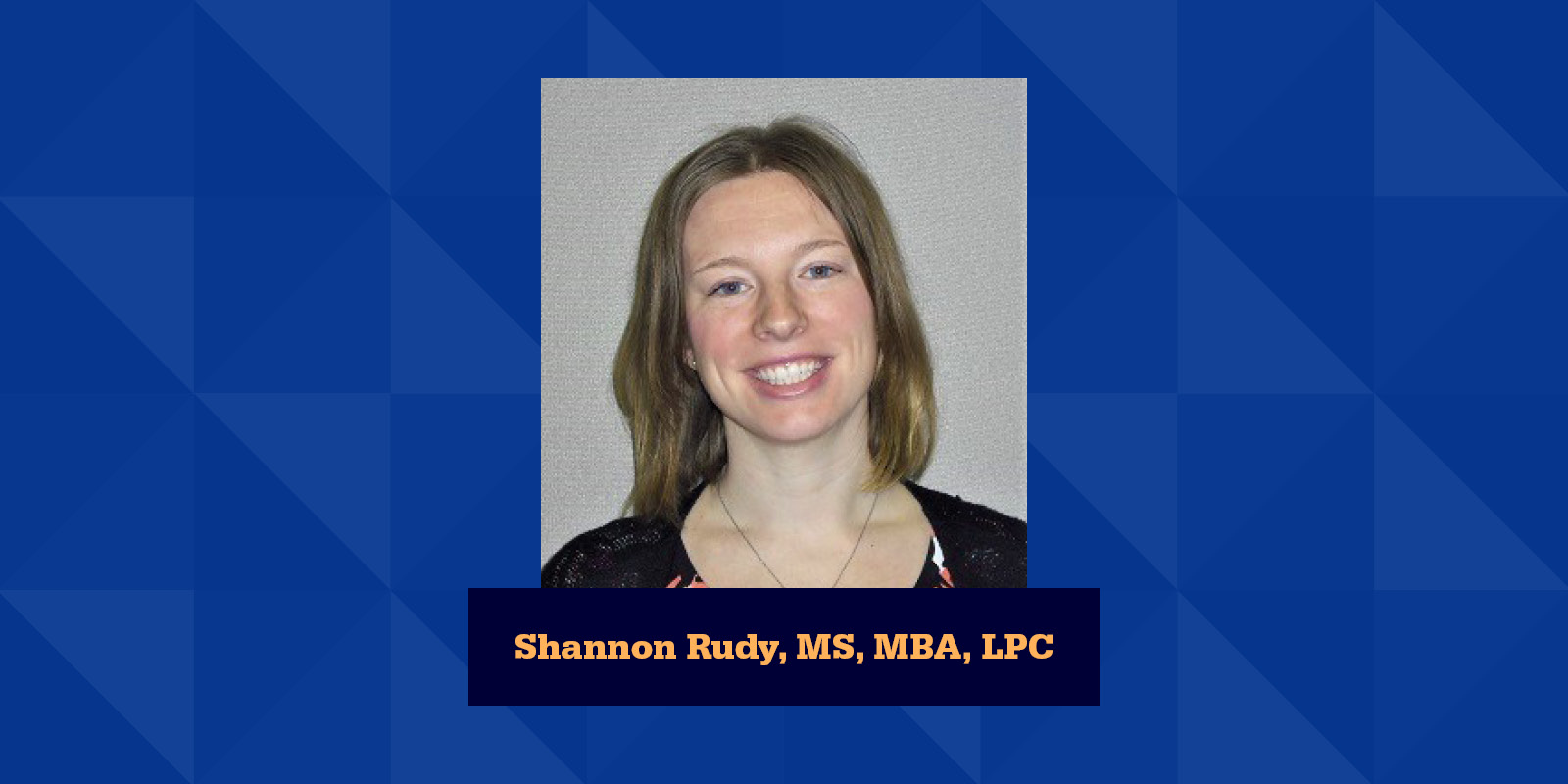
For over seven years Shannon Rudy, MS, MBA, LPC, has been the Child and Adolescent Partial Hospitalization Program Manager at Pennsylvania Psychiatric Institute (PPI). Prior to becoming the program manager, Shannon was a Family Based Program Director for Cumberland and Perry counties. She also has experience in being a manager of an Alternative Living Unit with adults with disabilities and working with adults/children in the outpatient therapy setting.
She is a certified clinical supervisor for LCSWs/ LPCs, completed a 3-year eco-systemic family therapy training program, and although not technically certified, she has over 30 hours of Dialectical Behavioral Therapy (DBT) trainings. Shannon also obtained her MBA with a specialization in Health Care Management.
Shannon has a natural empathy for children. “I originally went to college at Shippensburg for teaching. But I took a psychology course and was fascinated by the class, especially learning about the developmental stages of life and the results of when a stage is disrupted by trauma.” Shannon reflects
“ I have a twin brother with Tourette’s. Watching him go through school was so hard. Children bullying him because he was different and even teachers didn’t know how to handle the situation. Children are put into situations or life experiences that aren’t their fault, and my passion is to be an advocate for children. To help get children into services that can help them overcome those obstacles.”
As the program manager, Shannon is dedicated in serving the children/adolescent population. She believes in taking an active role in supporting her staff so that her staff can better support the children/ adolescents. “In our program it’s a team effort. If staff need extra support that day than that’s what they get. If a child needs an impromptu session because of events that took place the night before than that’s what they get, even if it’s me stepping in and being that support”. Shannon also makes herself available for children/adolescents to practice their learned DBT skills in real time such as when children need to practice their communication skills or engage in therapeutic interactions. Shannon believes in leading by example. She wouldn’t ask staff to do anything that she wouldn’t do herself.
Further speaking to Shannon, she believes that the program should always be adapting and changing to meet the children’s needs not vise versa. She is dedicated towards quality improvement initiatives such as their 5 Star’s Program and Mile Zero. Her goal for the program is to ensure it runs effectively and smoothly for all children and families participating in the Child and Adolescent Partial Hospitalization Program.
What is the Child and Adolescent Partial Hospitalization Program?
The program operates on an approximate 15-day cycle Monday through Friday 8am-2pm for school-aged students. The program runs throughout the year, including summer, however during the school year, kids will attend this program instead of going to school for the 15 days. Shannon explains, “This program is for children whom outpatient therapy of one to two times a week isn’t enough. It can also be used as a step down from 24-hour care, to help transition them down to less intensive services.”
“The partial unit focuses on a DBT informed version of Marsha Linehan’s Comprehensive outpatient DBT program for Adolescents. We focus on DBT due to the short duration of the program and the fact that it works well with adolescents. We teach them to not focus on the past – as it can’t be changed, to not worry about the future – why worry about what is yet to happen but instead focus on the here and now.”
There are four main areas the program teaches on:
- Mindfulness
- Interpersonal effectiveness
- Emotion regulation
- Stress tolerance
“We try to teach as many skills through these four areas as possible as we realize each skill won’t work for everyone. The focus is to teach a skill in a group room, have them apply it in our unit classroom setting, and then go home and practice the skill. The next day we ask the children how it went, if there were any barriers, and then we build on what they learned with a new skill” outlines Shannon.
What people may not realize is that this mental health services in available during the summer months as well. “With summer vacation, our waitlists shrink, so summer is a good time for faster access into these programs” adds Shannon. “In addition to the partial program, outpatient therapy groups will be starting in July. Groups like social skills and emotional regulation for those elementary-aged, interpersonal and mindfulness for middle school and emotional regulation for adolescents. A parenting support group and a LGBTQIA+ group will also be included.
Program success
Partial program
Shannon tells of a story of success, “We had a child who refused to go to school, and the family didn’t understand why. The family thought something happened at school or maybe their child was getting bullied. When they came to PPI, our staff was able to work with both the child and the family to identify the reason for refusal to attend school. There were recent dynamic changes in the child’s home life and the child was afraid something else would change while at school. Staff was able to create a safe space for the child to communicate openly to parents while at the same time give guidance to the parents in a supportive nature. This environment allowed for the family to be successful. Throughout treatment we engaged the school to help lend more supports to the child. We had ongoing active communication with the school even after the child was discharged from our care to help solidify a plan for the child in the school setting. A few months later the school reached out to give us a positive update.”
Outpatient program
“Our goal is to increase access to mental health services. By providing outpatient groups we can provide a full continuum of care. Children can step down from inpatient to partial to outpatient groups. By offering group therapy PPI can serve more children who otherwise might not receive any mental health services. We also want to be that bridge for children who are waiting for long term outpatient therapy. Research has shown children who have continued mental health services at each level of titration have better outcomes then children who have a gap in mental health services.
“Children can join the outpatient groups without going through the partial program. It’s a way we can be an additional resource for children in the community needing mental health help.,” explains Shannon.
Access to care
“After COVID, services have become even more limited. It became even harder to find a psychiatrist. There was an explosion in people needing both psychiatric and therapy services, but the providers were not taking new clients. On top of that, children have always had limited access to care. At one point, we called 77 agencies and not one was taking on clients. It’s heart breaking to see a person needing help and you know what help they need you just can’t give it to them. To have your hands tied and must watch it play out is the worst feeling in the world.” This is why we are excited to offer outpatient groups.
When asked about where she hopes to take the program, Shannon replied, “My goal is to increase access to care for children. For them to receive the care they need at the time they need it. I would like to be able to remove barriers to care and open more outpatient services to children.”
Learn more about our child and adolescent psychiatric programs here, or reach out to our admissions department to make an appointment, by calling (717) 782-6493.

